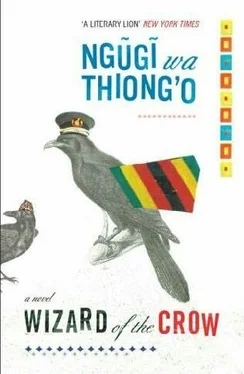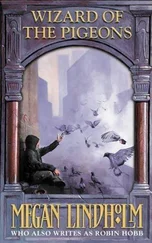This obsession with her tears, claimed the creators of the fourth theory, led to the Ruler’s strange illness.
The trouble with this theory was that it relied either on rumors or whatever could be deduced from the behavior of the Ruler’s children.
It was also the least known of the five theories because it was whispered only among people who trusted one another: for who would be so foolish as to talk about this openly unless he courted death?
There were others who, to this day, are ready to swear that the illness had nothing to do with burning anger, the anguished cry of a wronged he-goat, the aging reign, or Rachael’s tears, and theirs was the fifth theory: that the illness was the sole work of the daemons that the Ruler had housed in a special chamber in the State House, who had now turned their backs on him and withdrew their protective services.
It is said that the walls and ceiling of the chamber were made from the skeletons of the students, teachers, workers, and small farmers he had killed in all the regions of the country, for it was well known that he came into power with flaming swords, the bodies of his victims falling down to his left and right like banana trunks. The skulls of his most hated enemies hung on the walls and others from the ceiling, bone sculptures, white memories of victory and defeat.
The chamber was a cross between a museum and a temple, and every morning the Ruler, after first bathing in the preserved blood of his enemies, would enter, carrying a staff and a fly whisk, and then walk about quietly, looking at the various exhibits one by one; then, about to leave, he would suddenly stop at the door and glance one more time at the chamber and, with mocking gestures of triumphant contempt, at the dark holes and grinning teeth where once eyes and mouths had been.
What were you after? he would ask the skulls as if they could hear him. This fly whisk, this scepter, this crown? He would pause as if expecting an answer, and when the skulls failed to respond he would burst out in guffaws as if daring them to contradict what he was about to say: I plucked out your tongues and tore your lips to show you that a politician without a mouth is no politician at all. But there were times when it looked as if the skulls were grinning back in coun-termockery and the laughter would stop abruptly. You fucking bastards, it is your own greed and boundless ambitions that led you here. Did you seriously think that you had a chance to overthrow me? Let me tell you. The person who would even dare has not been born, and if he has, he still will have to change himself into a spirit and grow a beard and human hair on his feet. You did not know that, did you? he would add, pointing at them with his staff menacingly, his mouth foaming with fury.
Let me say as the narrator that I cannot confirm the truth or falsity of the existence of the chamber; it may turn into a mere rumor or tale from the mouth of Askari Arigaigai Gathere: but if it exists, simple logic proves that it was the Ruler’s morning rites in this chamber of skulls that long ago, before the Ruler’s fatal visit to America and any talk of his illness, had given rise to a rumor that quickly spread throughout the country. Whenever two or three gathered together, the very first question was about the rumor: Can you believe it? Did you know that the Ruler is a devil worshipper, and that he worships his lord and master, Satan, in the name of a serpent?
The rumor about devil and snake worship took root in all Aburiria following one of the most ambitious programs for birthday celebrations in honor of a Ruler ever undertaken in the country.
Now everybody in the country knew something or other about the Ruler’s birthday because, before it was firmly set in the national calendar, the date of his birth and the manner of its celebration had been the subject of a heated debate in Parliament that went on for seven months, seven days, seven hours, and seven minutes, and even then the honorable members could not arrive at a consensus mainly because nobody knew for sure the actual date of the Ruler’s birth, and when they failed to break the impasse, the honorable members sent a formal delegation to the very seat of power to seek wise guidance, after which they passed a motion of gratitude to the Ruler for helping the chamber find a solution to a problem that had completely defeated their combined knowledge and experience. The birthday celebrations would always start at the seventh hour of the seventh day of the seventh month, seven being the Ruler’s sacred number, and precisely because in Aburlria the Ruler controlled how the months followed each other-January for instance trading places with July-he therefore had the power to declare any month in the year the seventh month, and any day within that seventh month the seventh day and therefore the Ruler’s Rirthday The same applied to time, and any hour, depending on the wishes of the Ruler, could be the seventh hour.
The attendance at these annual assemblies always varied, but that particular year the stadium was almost full because the curiosity of the citizens had been aroused by a special announcement, repeated over and over in the media, that there would be a special birthday cake, which the entire country had made for the Ruler and which he might make multiply and feed the multitude the way Jesus Christ once did with just five loaves and two fishes. The prospect of cakes for the multitude may explain the more than usual presence of victims of kwashiorkor.
The celebration started at noon, and late in the afternoon it was still going strong. The sun dried people’s throats. The Ruler, his ministers, and the leaders of the Ruler’s Party, all under a shade, kept cooling their tongues with cold water. The citizens without shade or water distracted themselves from the hot darts of the sun by observing and commenting on what was happening on the platform: the clothes the dignitaries wore, the way they walked, or even where each sat relative to the seat of might.
Immediately behind the Ruler was a man who held a pen the width of an inch water pipe in his right hand and a huge leather-bound book in his left, and since he was always writing people assumed that he was a member of the press, although there were some who wondered why he was not at the press gallery. Beside him sat the four sons of the Ruler-Kucera, Moya, Soi, and Runyenje- studiously drinking from bottles labeled Diet.
Near the sons sat Dr. Wilfred Kaboca, the Ruler’s personal physician, and next to him, the only woman on the platform, who was also conspicuous by her silence. Some assumed that she was one of the Ruler’s daughters, but then, they wondered, why was she not speaking to her brothers? Others thought that she was Dr. Kaboca’s wife, but then why this silence between themr
To the Ruler’s right sat the Minister for Foreign Affairs in a dark striped suit and a red tie with a picture of the Ruler, the emblem of the Ruler’s Party.
The story goes that Markus used to be an ordinary member of Parliament. Then one day he flew to England, where under the glare of publicity he entered a major London hospital not because he was ill but because he wanted to have his eyes enlarged, to make them ferociously sharp, or as he put it in Kiswahili, Yawe Macho Kali, so that they would be able to spot the enemies of the Ruler no matter how far their hiding places. Enlarged to the size of electric bulbs, his eyes were now the most prominent feature of his face, dwarfing his nose, cheeks, and forehead. The Ruler was so touched by his devotion and public expression of loyalty that even before the MP returned home from England the Ruler had given him the Ministry of Foreign Affairs, an important Cabinet post, so that Machokali would be his representative eye wherever, in whatever corner of the globe lay the Ruler’s interests. And so Machokali he became, and later he even forgot the name given at his birth.
Читать дальше












